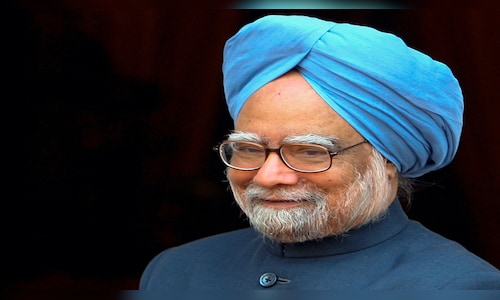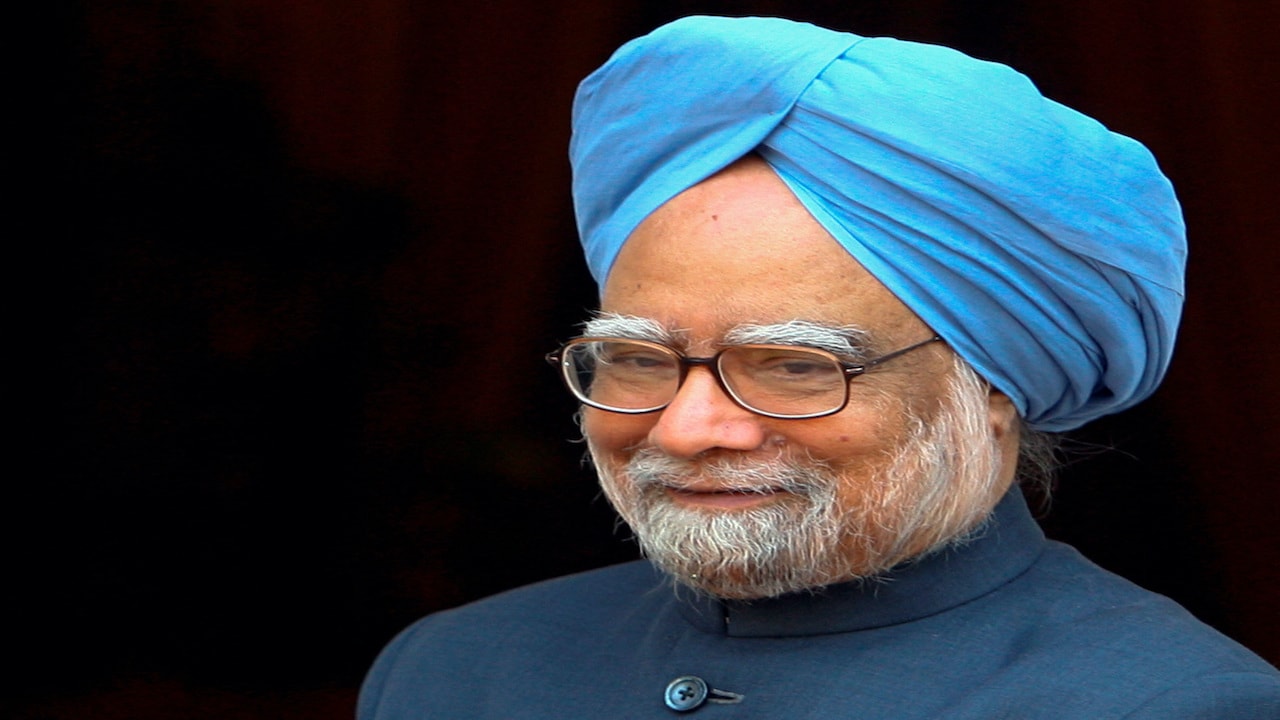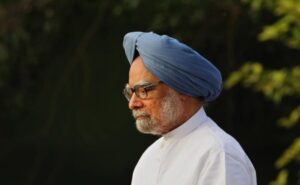

In 1991, India was teetering on the brink of an economic crisis. As Finance Minister under Prime Minister Narasimha Rao, Dr Singh seized the moment with bold reforms that dismantled the licence-permit raj, ushering in liberalisation, privatisation, and globalisation. These policies freed India’s economy from decades of overregulation, setting the stage for decades of robust growth.
To discuss Dr Singh’s legacy, CNBC-TV18 spoke to Hamid Karzai, Former President of Afghanistan; Khurshid Mahmud Kasuri, former foreign minister of Pakistan; Naina Lal Kidwai, Former President of FICCI; Subodh Bhargava, Former Chairman of Tata Communications; Sunil Kant Munjal, Chairman of Hero Enterprise; NK Singh, Chairperson of the 15th Finance Commission; and Shyam Saran, former foreign secretary.
NK Singh encapsulated Singh’s indelible impact, recalling his audacity to initiate bold economic reforms during India’s financial crisis in 1991. “He vowed to himself that he would not allow the fair name of India to be tarnished as a debt defaulter,” Singh said.
As Finance Minister under Prime Minister Narasimha Rao, Singh laid the foundation of a new India, dismantling the licence raj, embracing fiscal prudence, and ushering in liberalisation, privatisation, and globalisation. Singh’s iconic 1991 budget speech, which heralded a new era of economic architecture, remains a cornerstone of India’s modern economic story.
Meanwhile, Karzai lauded Singh’s profound dignity and strategic vision in fostering India-Afghanistan relations. “Dr Singh was a close friend and ally of Afghanistan. His contributions to our reconstruction and strategic partnership were monumental,” Karzai remarked. Singh’s visit to Afghanistan in 2005, the first by an Indian Prime Minister in nearly three decades, underscored his commitment to regional stability and development.
Singh’s tenure as Prime Minister from 2004 to 2014 witnessed landmark reforms, including the Right to Information Act, rural employment guarantees, and the Indo-US nuclear deal. His steady hand in turbulent times, such as the near-collapse of his coalition over the nuclear agreement in 2008, underscored his political acumen and resolve.
Edited Excerpt from the Discussion:
Q: How would you remember Manmohan Singh?
NK Singh: Indeed, a very sad day. I remember him as someone who dared to undertake the boldest economic reforms because he had vowed to himself that he would not allow India’s fair name and reputation to go down as a debt defaulter. So, when he became the finance minister, much later, with many other things and the associations I had in multiple ways, I congratulated him. He was delighted to welcome me and say that, since I was looking after the fund bank negotiations, he was keen to work closely with the multilateral institutions. Indeed, when he was made the finance minister, whatever may have been the thought processes of the former Prime Minister Narsimha Rao, he was undoubtedly a man whose reputation and credibility were greatly admired by institutions all over the world, including the multilateral development banks and the International Monetary Fund, which at that time we very much needed to stave off a debt default. So, when they entered his room, he told me these indelible words – we will build the foundations of a new India. We’ll get over the legacy and the baggage of the past. For long, India has been shattered by these debilitating regulations. We will free all this. It left me puzzled as I left his room. Still, I realised very soon that he was referring already to the contours of the budget speech, which shaped the contemporary economic architecture and the far-reaching economic reforms it ushered, undoing and unshackling the debilitating regulations of the license permit raj, freeing up trade, moving to a path of fiscal rectitude, undertaking economic reforms necessary to rekindle growth.
So, he was one of the key architects of the new economic architecture, under whose glory we continue to bask today. I remember that my first meeting with him at a personal level was the very first day when he worked for the government. Believe me, this was 1971. He worked as the economic adviser in the Ministry of Commerce, and right from that day, I was closely associated with him for decades.
Q: What about the last few years since the UPA lost the elections in 2014? How were the previous 10 years for the former Prime Minister? We did get to meet him in Parliament now and then. He was always filled with humility, always ready to meet reporters and people on the ground. Have you had any conversations with him over the years? Will something stick with you?
NK Singh: I returned after a meeting in Mexico — which had the G20 presidency — where I met my good friend, Larry Summers. Larry Summers told me, do me a favour; carry this message to my good friend Manmohan Singh. Tell him I now believe India does not believe in the rule of law. I said, what do you mean? He said, you undertake a retrospective change in your taxation law to hurt people, and you want me to believe that India believes in the rule of law. Please tell him that Larry said this. I returned and said verbatim what Larry had asked me to convey, and Manmohan Singh was generous and kind enough to appreciate it. He told me that perhaps Larry is correct, but when your finance minister successively tells you that these retrospective changes are necessary to sustain India’s development expenditure on the social sector, What does a prime minister do? That question remains unanswered, but that was how humble he was to fully accept the importance of Larry’s remarks that perhaps retrospective changes were not admirable for countries seeking to attract foreign investment.
Q: Regarding India-Afghanistan relations, Manmohan Singh visited Afghanistan in 2005, the first visit by an Indian Prime Minister in 29 years. How do you recall your first meeting with him and the legacy he leaves behind?
Karzai: Dr Manmohan Singh was a close friend and ally of Afghanistan and helped the Afghan people in many ways during his time in office.
I remember him as a learned man with profound dignity and humility. During all his visits to Afghanistan and India, we had the best engagement and relationship, which led both countries to a strategic partnership. The benefits, especially to the Afghan people, that came from this relationship are that he is a leading element for the reconstruction we saw during his time in office. We are grateful to him.
Q: Khurshid Mahmud Kasuri, you played an important role when former Prime Minister Manmohan Singh was in office, especially in resetting the peace process related to Pakistan and the dialogue over Kashmir. How do you remember Manmohan Singh’s contribution to these issues?
Kasuri: He was a man of great vision and great humility. And I always felt there was a personal touch. The process started when Prime Minister Atal Bihari Vajpayee visited Pakistan at the invitation of its PM, and there was a meeting between President Pervez Musharraf and Prime Minister Vajpayee, following which there was an agreement to resume the dialogue. There was no doubt that although the process had started at that time, Manmohan Singh worked with great honesty, purpose and vigour to improve relations between the two countries. And actually, he was a man who looked beyond the two countries. He thought of the entire region. His famous statement best exemplifies that he looked forward to the day when it would be possible to have breakfast in Amritsar, lunch in Lahore and dinner in Kabul. So, he was looking at the SAARC region as a whole. We miss people with such vision today, but let’s hope things will improve soon. And the progress that was made was quite unprecedented.
Q: How do you remember your meetings with Manmohan Singh and his significant contribution to the Indian private sector, opening up the economy in the early 1990s?
Bhargava: His most significant contribution, in my view, can be talked about as empowering Indian business, empowering Indian business people, unshackling The entrepreneurship of Indians, and both in terms of abolishing the licence raj and simultaneously opening up the international global competition. What he made was that Indian business people became aware, more efficient, and more quality-conscious. That was a transformative change in addition to many other transformative achievements which he had for the nation.
Q: How would you remember his contribution to the financial sector, especially the banking sector?
Kidwai: I was fortunate to work with Dr Manmohan Singh during his tenures as finance minister and prime minister. As finance minister, and indeed at the Reserve Bank of India, he was single-handedly responsible for opening up the banking sector to private sector engagement. He understood the need for competition and new players, and we saw a lot of reform and opening up in the banking sector under him.
The benefit we had with him in these roles, both at RBI and as finance minister, was no one could argue with his understanding of things needed for the economy and the regard with which he was held, not just among the economists in the country, but globally. I saw this in the warmth with which people like Larry Summers, when he visited India, always got time in the Prime Minister’s calendar. Dr Manmohan Singh hosted dinners for him. Larry Summers was the US Secretary of Treasury in the Bill Clinton government. Those sorts of engagements with economists from around the world also, I think, gave India access to some of the best minds in the world who, whether they were consulted or whether they just offered advice, all those inputs came in to form what was going to be our strategy.
As Prime Minister, if you look at the pillars on which growth today is benefiting, GST, Dr Manmohan Singh’s period coincided with my taking over as president of FICCI. I know how hard he worked to get GST through to ensure that we could have that benefit, which we feel today regarding tax collections and, therefore, the revenue model from which we benefit. Then, the Aadhaar card, a very critical part of the inclusivity that Dr Manmohan Singh believed in, and that too saw its origins in his regime. So, many of the pillars on which our growth today depends were founded, created, and allowed to blossom under Dr Manmohan Singh’s various roles in government and, in particular, as finance minister and then Prime Minister.



